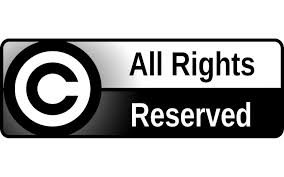STRATEGIC MORTGAGE DEFAULT IN FINANCIAL INSTITUTIONS: A PROPOSAL FOR AN ALTERNATIVE MANAGEMENT
Strategic mortgage default is a unique kind of behavior and requires a different kind of treatment from regular default. This paper defines strategic default as the willingness of the borrower to walk away from a mortgage obligation when the value of the property falls below the unpaid principal balance despite the ability to make monthly payments on the mortgage. Despite undergoing a similar mortgage crisis as the United States, an investigation from a selection of
European countries shows that the main reasons for the absence of strategic default are the possibility of unlimited recourse and the legislation relating to mortgage defaults. Unfortunately, this is not the case in the United States and current management programs available are not properly addressing these issues. Evidence suggests that negative equity is the most significant driver of strategic default behavior, and designing a program that is beneficial for both the borrower and the lender is an important consideration in preventing and treating strategic default. This paper aims to introduce an alternative management solution named Share Appreciation for Responsible Homeowner Alternative (SARHA). It is a modification program designed to provide a balanced incentive for both the borrower and the lender.
Click below to upload and read the complete document:
Strategic_Mortgage_Default_in_Financial_Institutions___Proposal_for_Alternative_Management.pdf
Contagion Effects in Strategic Mortgage Defaults
Using a large sample of U.S. mortgages, we document contagion effects in strategic mortgage defaults. These result from borrowers choosing to exercise their in the money default option. Our findings suggest this choice is influenced by the delinquency rate in surrounding zip codes after controlling for determinants of mortgage default. The fact that the local area delinquency rate is an important factor for strategic defaulters but not for defaults that are the result of inability to pay supports the contagion hypothesis. Our estimates suggest a 1% increase in the delinquency rate increases the probability of a strategic default up to 16.5%.
Click here to upload the complete document:
Contagion_Effcts_In_ Strategic_Mortgage_Defaults_.pdf
The Determinants of Attitudes toward Strategic Default on Mortgages
We use survey data to measure households’ propensity to default on mortgages even if they can afford to pay them (strategic default) when the value of the mortgage exceeds the value of the house. The willingness to default increases in both the absolute and the relative size of the home-equity shortfall. Our evidence suggests that this willingness is affected by both pecuniary and non-pecuniary factors, such as views about fairness and morality. We also find that exposure to other people who strategically defaulted increases the propensity to default strategically because it conveys information about the probability of being sued.
IN 2009, FOR THE first time since the Great Depression, millions of American households found themselves with a mortgage that exceeded the value of their home. According to First American CoreLogic, more than 15.2 million U.S. mortgages, or 32.2% of all mortgaged properties, were in a negative equity position as of June 30, 2009, while in some states (such as Arizona and Nevada) this number exceeded 50%.1 Importantly, the difference between the value of the house and that of the mortgage is often very large. For example, in 2009 the median owner’s equity for those who bought a house in the Salinas, CA metropolitan statistical area (MSA) in 2006 was $214,305.2 Given the magnitude of this phenomenon, it is important to investigate whether homeowners
with such a large negative equity value will choose to walk away from their homes.
Click here to upload the complete document:
Determinants_of_Attitudes_ Strategic_Default.pdf
Did Mortgage Default Provisions Contribute to the Housing Bubble?
There have been a number of different factors that played a role in the recent housing bubble in the United States. In this paper, we explore the impact of the legal environment from provisions for mortgage default across U.S. states. While housing demand should be higher in markets with less legal control, lenders may also adjust the amount of mortgage credit provided. Our empirical results indicate that supply-side factors in mortgage lending dominate the demand side factors. That is, a lack of legal control regarding mortgage default did not contribute to the housing bubble. Instead, it appears that housing prices appreciated more in states which provided lenders with more protection.
Click here to upload the complete document:
Mortgage Default June2013.pdf
Unemployment, Negative Equity, and Strategic Default
Using new household level data, we quantitatively assess the roles that (i) job loss, (ii) negative equity, and (iii) wealth (including unsecured debt, liquid, and illiquid assets) play in default decisions. In sharp contrast to prior studies that proxy for individual unemployment status using regional unemployment rates, we find that individual unemployment is the strongest predictor of default.
We find that individual unemployment increases the probability of default by 5-13 percentage points, ceteris paribus, compared to the sample average default rate of 3.9%. We also find that only 13.9% of defaulters have both negative equity and enough liquid or illiquid assets to make 1 month’s mortgage payment.
This suggests that "ruthless," or "strategic" default during the recession is relatively rare, and suggests that policies designed to promote employment, such as payroll tax cuts, are most likely to stem defaults in the long run rather than policies that temporarily modify mortgages.
Click here to upload the complete document:
Strategic_Default __Negative_Equity__Unemployment.pdf
The Role of Informational Uncertainty in the Decision to Strategically Default
This study identifies a severe gap between the financial backlash borrowers believe awaits them after strategic mortgage default and the reality that lenders rarely pursue deficiency judgments.
This, coupled with the social norm finding that borrowers widely view strategic default as immoral, leads us to recommend lenders and policymakers seeking to stem the tide of defaults to pursue a policy of informational opacity.
We make several policy recommendations for how to carry out such a policy as well as what might need to change in society before the alternative policy of informational transparency becomes Pareto optimal.
Click here to upload the complete document:
Informational_Uncertainty_In_
Strategic_Default.pdf
Underwater and Not Walking Away: Shame, Fear and the Social Management of the Housing Crisis
Despite reports that homeowners are increasingly “walking away” from their mortgages, most homeowners continue to make their payments even when they are significantly underwater. This article suggests that most homeowners choose not to strategically default as a result of two emotional forces: 1) the desire to avoid the shame and guilt of foreclosure; and 2) exaggerated anxiety over foreclosure’s perceived consequences.
Moreover, these emotional constraints are actively cultivated by the government and other social control agents in order to encourage homeowners to follow social and moral norms related to the honoring of financial obligations - and to ignore market and legal norms under which strategic default might be both viable and the wisest financial decision.
Norms governing homeowner behavior stand in sharp contrast to norms governing lenders, who seek to maximize profits or minimize losses irrespective of concerns of morality or social responsibility. This norm asymmetry leads to distributional inequalities in which individual homeowners shoulder a disproportionate burden from the housing collapse.
Click here for the complete document:

